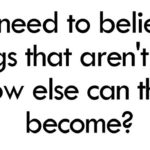Terry Pratchett, author of the Discworld series, dies aged 66
Terry Pratchett, author of the Discworld series, dies aged 66
Author of more than 70 books, who had early-onset Alzheimer’s disease, dies at his home, his publishers have announced
Sir Terry!
I am heartbroken.
I wrote the first 5,000 words of William the Antichrist. It had a demon named Crawleigh. He drove a Citroen 2CV, and was ineffectual. Proper demons like Hastur and Ligur loathed him. It had a baby swap. I sent it to a few friends for feedback. Then my graphic novel Sandman happened, and it was almost a year later that the phone rang.
“It’s Terry,” said Terry. “‘Ere. That thing you sent me. Are you doing anything with it?“
"Not really.”
“Well, I think I know what happens next. Do you want to sell it to me? Or write it together?”
“Write it together,” I said, because I was not stupid, and because that was the nearest I was ever going to get to Michaelangelo phoning to ask if I wanted to paint a ceiling with him.
Take boots, for example. [Vimes] earned thirty-eight dollars a month plus allowances. A really good pair of leather boots cost fifty dollars. But an affordable pair of boots, which were sort of OK for a season or two and then leaked like hell when the cardboard gave out, cost about ten dollars. Those were the kind of boots Vimes always bought, and wore until the soles were so thin that he could tell where he was in Ankh-Morpork on a foggy night by the feel of the cobbles.
But the thing was that good boots lasted for years and years. A man who could afford fifty dollars had a pair of boots that’d still be keeping his feet dry in ten years’ time, while a poor man who could only afford cheap boots would have spent a hundred dollars on boots in the same time and would still have wet feet.
—Terry Pratchett, Men at Arms (via rascalbot)
This is how it is really expensive to be poor.
(via everydayworldasproblematic)
Pratchett doesn’t get the credit he deserves for satire and social commentary. Vimes’ Theory of Economics hits the nail on the head perfectly.
(via dobdob)
Some terry pratchett quotes.





























